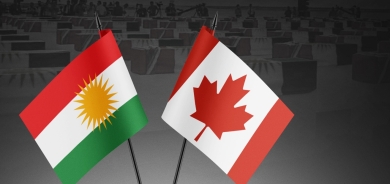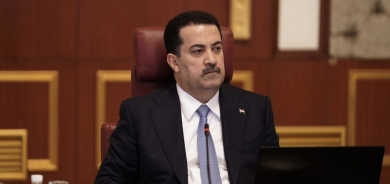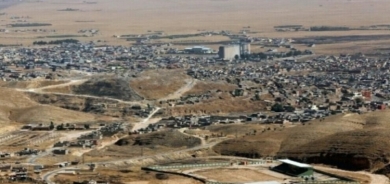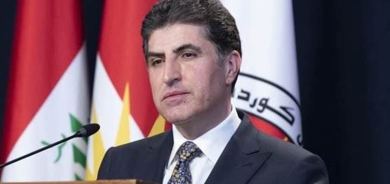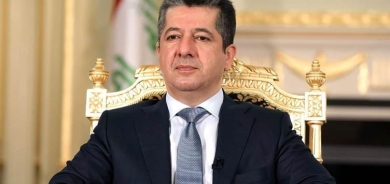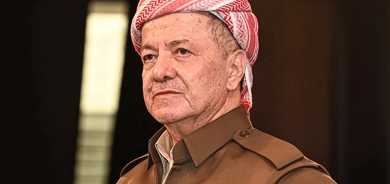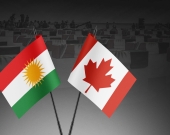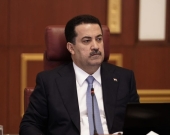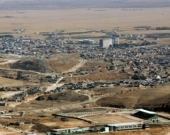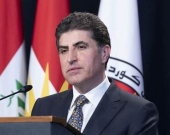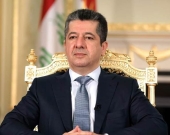Baghdad Citizens Divided Over Freeze in Budget Payments to Kurdistan

BAGHDAD, Iraq – Citizens in Baghdad are split between those who support Prime Minister Nuri al-Maliki and others who dismiss his policy of freezing payments to the autonomous Kurdistan Region from the national budget.
Hassan Salman, a 30-year-old government employee, said that cutting the budget, which means the Kurdistan Regional Government (KRG) is unable to pay the salaries of government workers, is unconstitutional.
“The legal, constitutional and humanitarian logic does not give the government of Baghdad the right to fight the people of Kurdistan, and use the employees' salaries as a tool for political pressure in order to make Kurdish politicians succumb to certain policies through manipulating the livelihood of the citizens,” he said.
“Cutting the salaries of employees working in Baghdad, Dhiqar, Basra or Erbil is another crisis added to the already existing ones, which are caused by the presence of oil, which has become a curse than a blessing,” he said.
Bushra Yassin, a 40-year-old citizen, said: “I don’t think cutting the salaries of employees will heavily influence the population of the region. In a way it could be turned into a political pressure, and make the Kurdish officials accept the conditions of Baghdad in settling the budget crisis, the Peshmerga issue, and exporting oil.”
She added, “The crises that beset the relationship between the Kurdistan Regional Government and the central government from time to time could cause social fracture between the components of the same society. If they deepen over time they will become difficult to treat afterwards. The leaders on both sides must take this into account and work to correct the course of relations before they get too tense and difficult to fix.”
The employees of the Kurdistan Region have been suffering from delayed payment of their salaries because of the differences between Baghdad and Erbil on the financial budget for 2014. The Kurdistan Region accuses the federal government of withholding salaries of civil servants as a political pressure tool.
Iraqi Prime Minister Nuri al-Maliki confirmed on February 28, 2014, that the KRG bears full responsibility for paying the salaries of employees in the region, not the federal government as some try to portray. He also said that salaries would be paid in Kurdistan once Kurdish oil is exported and revenues deposited in the state budget.
Falah Al-Shami, a 34-year-old citizen, said that, “Maliki is seeking through this decision to provoke an internal problem in the Kurdistan Region, especially since the citizens reject all problems that affect their daily livelihood.”
“Maliki’s cutting the salaries of the province sends several messages to the Kurds. He is implying that Massoud Barzani is unable to manage the economic affairs of Kurdistan without coordination with the central government.”
On February 25, 2014, President Barzani considered cutting the salaries of the employees of the region to be a declaration of war by Baghdad.
Meanwhile, journalist Fares Sharifi, said, “Talking about manipulating people’s livelihood in the battle between the central government and the province is a media war rather than a fact applied on the ground. Maliki tried to incite the public opinion in Kurdistan against Barzani to ensure a certain level of pressure on the government of Kurdistan Region and win some points in the contested issues between the two sides.”
He added, “Such tactics are conceivable in politics, especially if we consider the fact that Barzani often accuses Baghdad with being manipulative, and when he was threatened with cutting off the salaries, he could not provide it out of the treasury of the Kurdistan Region. Here we can say that everything that happened is a war of cards, some of which have been used before the elections.”
On February 23, 2014, the representatives of the Kurdistan bloc and the KRG, called the religious leaders and the international community to put pressure on Baghdad to end the policy of blockade and economic marginalization towards the government and the people of Kurdistan, stressing that the region is part of Iraq and has the right to take advantage and use all the rights and powers given in the Iraqi Constitution.
Alia Hussein, a citizen, said, “Cutting the salaries of employees in the Kurdistan Region was intentional, and comes within the context of a systematic bargaining with the Kurdish leaders in order to get a third term for Maliki.” Hussein called on both sides to “keep the livelihoods of people out of the political conflict and play political games away from the suffering of the people, their concerns, and livelihood.”
The Iraqi Council of Representatives finished on Sunday (March 16, 2014), the first reading of the draft law of the state budget in the absence of deputies of the Kurdistan Alliance and the Al-Mutahidun Coalition, during its 12th meeting with the presence of 164 deputies.
Baghdad and Erbil differ on a number of issues such as the share of Kurdistan Region in the Iraqi budget, benefits of the oil companies operating there, the salaries of the Peshmarga, and the implementation of Article No. 140 of the Iraqi Constitution and other issues that have not been resolved over the past years.
RUDAW

